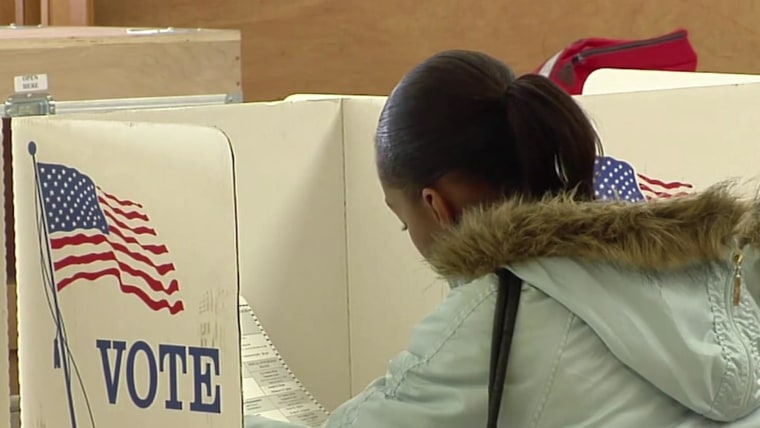WASHINGTON — The Supreme Court takes up a court fight Tuesday over voting rights in the battleground state of Arizona, and the outcome may affect how the nation's courts resolve clashes over election laws in dozens of other states.
The case also will be a test of one of the most important civil rights laws — the Voting Rights Act, which the Supreme Court significantly scaled back in 2013.
Two Arizona laws are at issue in the virtual oral arguments before the justices. One requires election officials to reject ballots cast in the wrong precincts. The other concerns voting by mail and provides that only the voter, a family member or a caregiver can collect and deliver a completed ballot.
"Prohibiting unlimited third-party ballot harvesting is a commonsense means of protecting the secret ballot," the state told the justices in court filings. The out-of-precinct rule is intended to prevent multiple voting, Arizona said.
But Arizona Democrats said the state has a history of switching polling places more often in minority neighborhoods and putting the polls in places intended to cause mistakes. Minorities move more often and are less likely to own homes, resulting in the need to change polling places, Democrats said.
Arizona far outpaces other states in discarding out-of-precinct ballots, rejecting 11 times more than the next-highest state. And minority voters are more likely to need help turning in their ballots, the challengers said. In many states where the practice is legal, community activists offer ballot collection to encourage voting.
A federal judge in Arizona rejected the challenges. But the 9th Circuit Court of Appeals reversed, so the state appealed to the Supreme Court.
In the past, the Voting Rights Act required states with histories of discrimination to get permission from courts or the Justice Department before changing election procedures. The test was whether would a change leave minority voters worse off. But in 2013 the Supreme Court suspended the preclearance requirement, ruling that Congress failed to properly update the formula to determine which states should be covered.
Under what's left of the law, the 9th Circuit said, state election provisions can be blocked if they disproportionately affect a racial minority's ability to participate in the electoral process and elect candidates of their choice and if the state has a history of discriminating against voters in that minority group. It concluded that the two Arizona laws failed those legal tests.
But the lower courts have disagreed about how to tell whether a change in voting practice violates the law.
Arizona Republicans say the test should require proof that a challenged law causes a substantial disparity in opportunities for minority voters to participate in the election, not just an incremental burden. For example, the state says, when considering a challenge to a law closing the polls half an hour earlier, courts should consider the election system as a whole and look at other voting opportunities, such as voting by mail or early voting.
But Arizona Democrats say that the law does not require proof of a "substantial disparity" and that there is no requirement to meet a minimum percentage of minority voters affected to successfully challenge a change in the voting rules.
The test advocated by Arizona, the American Civil Liberties Union argued in a friend of court brief, would impose "a categorical approach under which laws that are relatively commonplace, or that do not make voting altogether impossible, are largely immune from liability."
But Sen. Ted Cruz of Texas and other Republicans said the interpretation of the law advocated by Democrats would jeopardize any neutral voting law if it results in an unequal opportunity to vote whenever "a challenger identifies a minimal statistical racial disparity related to the law — and then points to completely separate, long past, invidious voting discrimination."
The Supreme Court will issue its ruling by the summer.
"hear" - Google News
March 01, 2021 at 06:01PM
https://ift.tt/303CuaV
Supreme Court to hear major test of voting rights law - NBC News
"hear" - Google News
https://ift.tt/2KTiH6k
https://ift.tt/2Wh3f9n
Bagikan Berita Ini
















0 Response to "Supreme Court to hear major test of voting rights law - NBC News"
Post a Comment